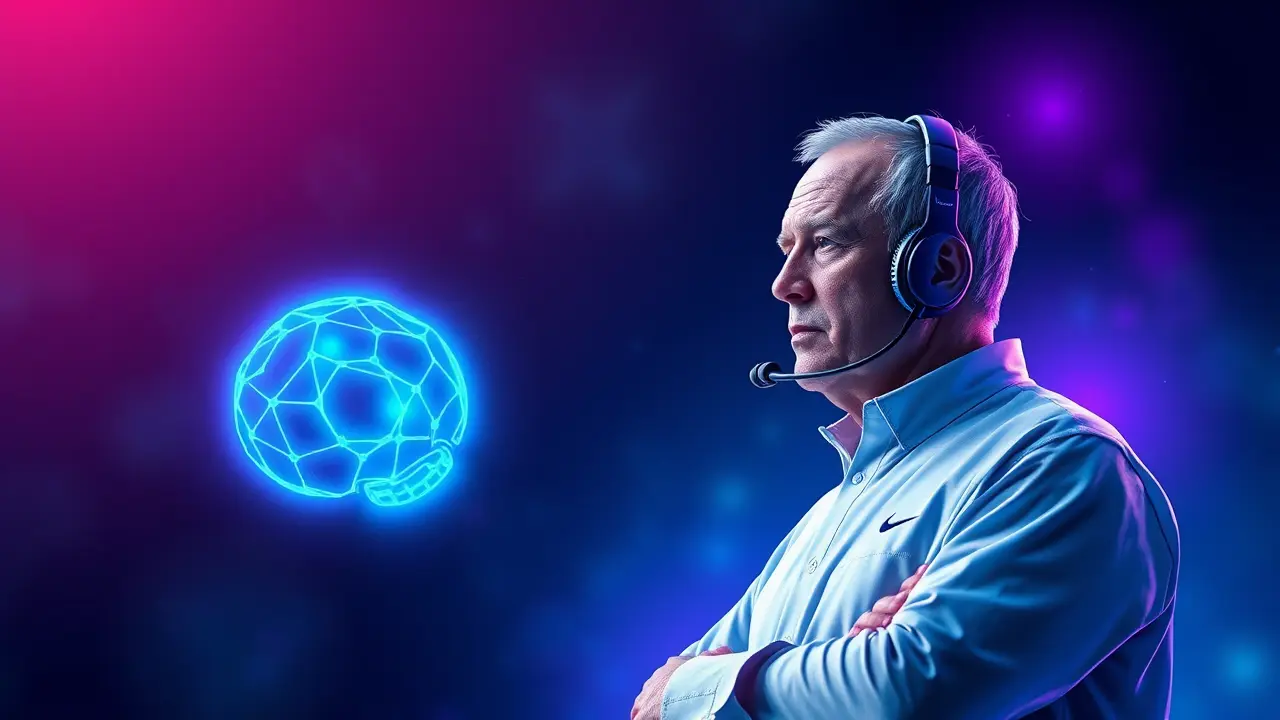UNC Chancellor Bets on AI and Bill Belichick
In a move that initially scans as a peculiar administrative decision but upon closer inspection reveals a sophisticated, almost philosophical, thesis on the nature of intelligence and leadership in the 21st century, UNC Chancellor Lee Roberts is placing two seemingly disparate bets for the future of his institution: one on the algorithmic certainty of artificial intelligence and the other on the hard-won, instinctual genius of six-time Super Bowl champion coach Bill Belichick. To the casual observer, coupling the cold, relentless logic of silicon with the gritty, emotional volatility of an NFL sideline might appear dissonant, yet Roberts articulates this dual-track strategy with the conviction of a Silicon Valley CEO pitching a paradigm-shifting startup, framing it not as a contradiction but as a necessary synthesis.The AI initiative, a cornerstone of his vision, is far more than a simple investment in new computer labs or a handful of machine learning courses; it represents a fundamental recalibration of the university's academic DNA, an ambitious plan to weave computational thinking and large language model literacy into the very fabric of a liberal arts education, ensuring that a future historian or sociologist can leverage AI for textual analysis or a biologist can utilize predictive models for genomic research, thereby preparing students not just for the job market but for a world where human cognition is perpetually augmented by machine intelligence. This is not merely about keeping pace with technological trends; it's a proactive attempt to shape the ethical and practical frameworks within which AGI, or artificial general intelligence, will eventually operate, positioning UNC as a crucible for the kind of interdisciplinary dialogue—merging computer science with philosophy, ethics, and public policy—that will be critical in navigating the profound societal shifts on the horizon, a topic frequently debated in academic papers from NeurIPS to journals on AI safety.Conversely, the involvement of a figure like Bill Belichick, renowned for his obsessive preparation, data-driven defensive schemes, and a leadership style built on disciplined execution and situational adaptability, serves as a living case study in a different, yet equally potent, form of intelligence. Belichick’s legendary ‘Do Your Job’ philosophy, while born in the high-stakes arena of professional football, translates powerfully to the organizational challenges of a major university; it’s a masterclass in building cohesive systems where individual specialists perform their roles with excellence toward a common, championship-level goal, a lesson in resource allocation, strategic focus, and the management of human capital under extreme pressure.Roberts seems to be betting that the principles that built a football dynasty—principles of meritocracy, relentless analysis of film (or data), and an unwavering focus on process over outcome—are directly transferable to building an academic institution capable of competing at the highest level. The chancellor’s rhetoric, echoing the visionary pronouncements of tech titans, suggests he sees both AI and Belichick not as tools, but as complementary archetypes of modern problem-solving: one offering near-infinite scalability and pattern recognition, the other providing a timeless template for human organization, motivation, and strategic grit.The potential consequences of this bold wager are immense; success could forge a new model for the modern research university, a place where silicon and synapse are not in opposition but in a continuous, productive dialogue, producing graduates who are as fluent in Python as they are in the plays of Shakespeare and as adept at interpreting neural network outputs as they are at understanding team dynamics. However, the risks are equally significant, including the peril of reducing complex educational missions to simplistic, corporate-style KPIs, the cultural friction of imposing a top-down, football-style hierarchy on the traditionally decentralized and consensus-driven world of academia, and the ever-present challenge of ensuring that the pursuit of technological advancement remains firmly tethered to humanistic values. Ultimately, Lee Roberts’s strategy is a grand experiment, a high-stakes bet that the future belongs to those who can best integrate the calculable power of artificial intelligence with the unquantifiable wisdom of proven leadership, a synthesis that, if successful, could very well redefine what it means to be a preeminent public university in an age of accelerating change.
It’s quiet here...Start the conversation by leaving the first comment.
© 2025 Outpoll Service LTD. All rights reserved.
